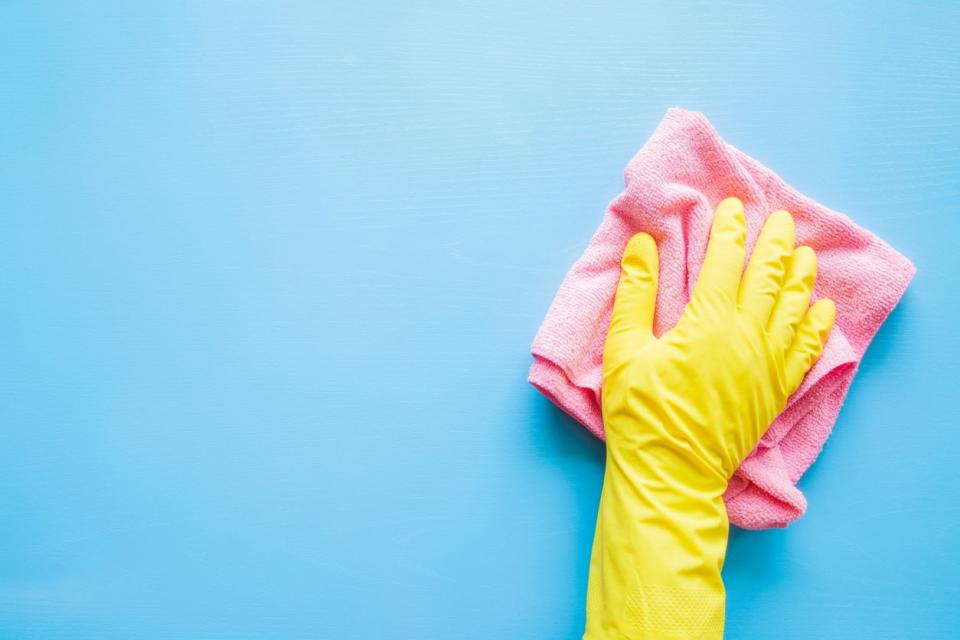A court in Beijing has ordered a man to pay his wife for housework and childcare – the amount is an insult to women everywhere

We know from countless studies that women habitually take on the lion’s share of housework and childcare
(Getty Images)How much money might you expect to earn over the course of five years? Would £5,460 be enough?
In a landmark move this week, a divorce court in Beijing ordered a husband to pay his wife compensation for the housework and childcare she undertook during their five-year marriage.
The ruling was made according to a new civil code in China, which came into effect this year. It states that compensation may now be sought by a spouse if they bear the greater responsibility for caring duties or household work.
The woman, known only as Wang, told the court that her husband “didn’t care about or participate in any kind of chores”, and left childcare to her, while he went off to work. The judge accepted Wang’s plea, saying that housework “can improve the ability of the other spouse to achieve personal, individual academic growth”. About time, too.
But here’s the rub. The total amount the judge has ordered the man to hand over is just 50,000 yuan. Or £5,460. A thousand pounds a year for full-time childcare and a live-in maid? What a bargain. I can’t wait to have kids one day and offload them to someone so cheap. Perhaps I, too, can then achieve “personal, individual academic growth”.
Turns out I’m late to the party, though: men all over the world are in on this secret and have been for decades. We know from countless studies that women habitually take on the lion’s share of housework and childcare, either as their full-time roles or alongside their attempts to build careers.
Analysis conducted by University College London in 2019 found that women clock up approximately 16 hours of household chores every week; men, closer to six. Women perform, on average, around four hours a day of this unpaid labour in the UK, according to the Organisation for Economic Co-operation and Development – almost double that of men in the UK and more than double that of men in China.
For the same work in the UK, a cleaner or a babysitter would likely be paid somewhere in the region of £12-20 per hour. That’s at least £17,520 a year of unpaid work if your wife does it instead. At that price, ‘til death do us part suddenly seems a whole lot more appealing.
An Oxfam report from 2020 calculated that the monetary value of unpaid care work globally for women aged 15 and over is at least $10.8tn (£8.3tn) annually. The organisation described the divide as being “based on a flawed and sexist economic system” and as a “broken economic model” that has seen wealth funnelled towards men, while women are exploited.
They say the system’s broken, but actually it was designed that way, and it’s working perfectly well for those who benefit from it. During the pandemic, women’s unpaid labour has only increased, with many taking on most of the childcare, despite both partners working from home.
The Office for National Statistics reported that women carried out an average of more than three hours a day of childcare compared to just two hours for men during lockdown in 2020. The consequence? Far more women than men losing or leaving their jobs while the schools are closed.
In 2020, the Institute for Fiscal Studies found that the average mother was doing just 35 per cent of the number of uninterrupted working hours that the average father did (down from 60 per cent in 2014/15). Meanwhile, gender pay gap reporting in the UK is about to be parked for the second year in a row, so we can’t tell exactly by how much this has impacted things on the office floor. Canny.
We only need to look to real life examples to see the impact of someone taking a step back in their own career to support their spouse. The 20th-century American realist painter Edward Hopper, whose powerful depictions of the isolation at the heart of American life found new appreciation during the pandemic, wasn’t the only painter in his family. Hopper’s wife, Jo, was also a painter before becoming his muse, model and glorified personal assistant.
When women are given the same opportunities, their achievements have also made history – go figure. George Eliot’s husband – also a writer – encouraged her to pursue her dreams and supported her work through managing the admin, allowing her to continue writing. And who could say where cancer treatment would be today without Marie Curie, whose husband Pierre gave up his own scientific research to focus on his wife’s investigations into radioactivity?
Imagine the personal projects or career successes Wang could have achieved during those five years while bringing up her children, if only her husband had been willing to do his equal share.
We saw a similar perception of women’s roles in the now-axed Conservative campaign that portrayed women as caregivers and cleaners, and when Rishi Sunak said, “we owe mums everywhere an enormous debt of thanks” for their support during the pandemic. I’m sure all those mums appreciated the shout-out. But you know what they’d appreciate more? Fair payment for the labour they contribute to society and their husbands pulling their weight.
If we have to start fighting for it through the courts, Wang-style, then so be it.
Read More
Man ordered to pay wife for housework in landmark China court case
Lockdown burnout: Women face mental exhaustion as they juggle childcare, housework and jobs
Rishi Sunak thanking ‘mums’ for juggling childcare and work is an insult to women – and men

 Yahoo Finance
Yahoo Finance